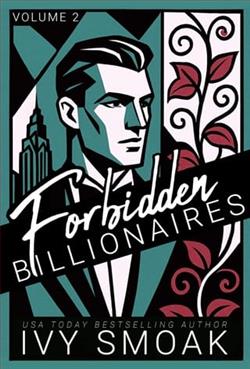Page 41 of Confounding Oaths
There was, Mr. Caesar reflected, no good answer. And he was sure Callaghan knew that. “I assume the answer is something very different to ‘attends balls.’”
“Though it may still havesomethingto do with balls,” added Jackson.
This interjection did, at least, direct Callaghan’s attention in a different direction. “Fuck off, she’s a charwoman.”
“Not a lot of balls then?” asked Mr. Caesar.
Callaghan shook his head. “Not a lot, no.”
“At any rate,” Mr. Caesar continued, “it is a matter that has affected one of my sisters so strongly that she has fallen under the sway of a fairy creature”—please, reader, do not call usfairy creatures,it is belittling—“and so while I am sure her life is still better than that of many of her age and sex—”
“Easy there,” Callaghan raised his drink towards Mr. Caesar in a gesture of comradeship. “I was only joshing with you. No man ever has to explain why he wants to watch out for his sister.”
Sal gave a polite cough.
“No woman neither,” added Callaghan. “Point is if mysister—she’s a Mary, too, by the by, that’s what comes of the same name going to a queen and also the mother of God—was in that sort of trouble there’s nothing I wouldn’t do to bring her back.”
The captain patted Callaghan warmly on the shoulder. “If it was your sister the fairies wouldn’t stand a chance.”
And again Mr. Caesar noticed the difference: it was a joke, yes, but not meant to wound. Which was presumably why Callaghan just nodded and said, “True enough. She’s a formidable woman.”
“I think we can all agree,” purred Jackson, who was sitting just outside the group and nursing his drink like he was concerned it might be poisoned, “that not one of us will judge you for looking after your own.”
“Thank y—” Mr. Caesar managed.
“Just as I’m sure you wouldn’t judge us for looking after ours.”
Even coming from Jackson, a man Mr. Caesar had been told outright was a thief, a liar, and a killer, it stung a little. Primarily because it was so plainly factual. “I would not. You’ve all been very kind, but I assure you I amveryaware that I’m an outsider here.”
“And that you’ve brought danger on us,” added Jackson.
That, too, was an uncomfortable thought. “That danger has passed now, surely?”
Sal laid her hands on his shoulders. Mr. Caesar wasn’t quite sure when she’d appeared behind him. “From what I saw you humiliated a British officer, insulted him, let him call you out, then humiliated him again by magic. No, I don’t think this is over.”
Letting his head flop forward like a broken doll, Mr. Caesar emitted a low but sincere “Fuck.”
“Not your fault,” Captain James reassured him. “Bloodworth’s always hated me. You were just the excuse. And if he comes forus”—he looked pointedly at the Irregulars—“we’ll be ready for him.”
That was some comfort to Mr. Caesar, but only some. Ideally, he felt, they should not have needed to be ready for anything at all.
But as grim a turn as the conversation had taken, the Irregulars were practical people, and if they had ever allowed themselves to dwell too long on the bleakness of their situation they would have all died from despair and French musketry long ago. So Barryson hijacked the mood with a story about a girl he’d known in Jarrow and the little band went back to drinking and laughing and trying not to worry too much about who was going to try to kill them next.
For Mr. Caesar it was a curiously—one might almost say unfamiliarly—pleasant evening. Although from time to time he would catch Jackson watching him coldly from across the room, more often he would catch the eye of the captain, and they would smile at one another. And not in the threatening way that men of Mr. Caesar’s set so often smiled. Despite the real physical danger he had been in just the day before and the only slightly less real physical danger he stood in now, surrounded by people who made their livings killing or stealing or (worst of all) doing honest labour, he found himself almost able to relax. It was a strange experience. And not an unwelcome one.
Which was, I am sure, terribly healthy for him, but it was sadly lacking in entertainment forme.That was the trouble with low taverns, so few of them bothered to maintain a proper standard of lowness. There had been a time when hardly an hour would pass in a place like this without a knife fight. I miss those days. Or at least I missed them. Now I’m stuck in a physical body I’m rather glad they’re over.
Towards the end of the evening, the party’s conversation turned to their plans for tracking the Lady and since I expected them to make limited progress in that area for reasons of having no idea what they were dealing with, I elected to leave. There were, after all, other threads to this tale that I needed to follow.
If the Irregulars offered scant hope of entertainment, I held out slightly more hope for the Caesars, who would soon be receiving word that their son had chosen to spend the evening with vagabonds rather than his family. Thanks to my uncanny alacrity and impeccable narrative timing, I caught up with the messenger just in time. She approached the Caesar residence with the sharp, cautious air of somebody who was accustomed to being unwelcome in the parts of the city that had streetlights and knocked at the door. Nancy greeted her, and I saw there pass between them the curious recognition of mutual hierarchy that, in that day, existed even amongst the lowest orders. A maid in a lady’s house, even a lady who lived like a Quaker, outranked a girl from the slums.
A letter was passed and I, wearing the shape of a bumblebee, slipped in the door as it was closing. From the street, Nancy ran it upstairs and put it in the hand of Lady Mary, who read it, rose at once, and went to fetch her husband.
“John is not returning this evening,” she told him, when he emerged from his study. “He says he has a plan that will help, but that it requires him to remain at—he says the Folly. Do you know what that is?”
There were few secrets between the Caesars, and so the elder Mr. Caesar nodded and told the truth. “It is an inn in St. Giles, frequented by soldiers and criminals.”
“Then I’m sure John shall like it very well,” said Miss Anne, looking up from her novel. “Such company suits him.”















